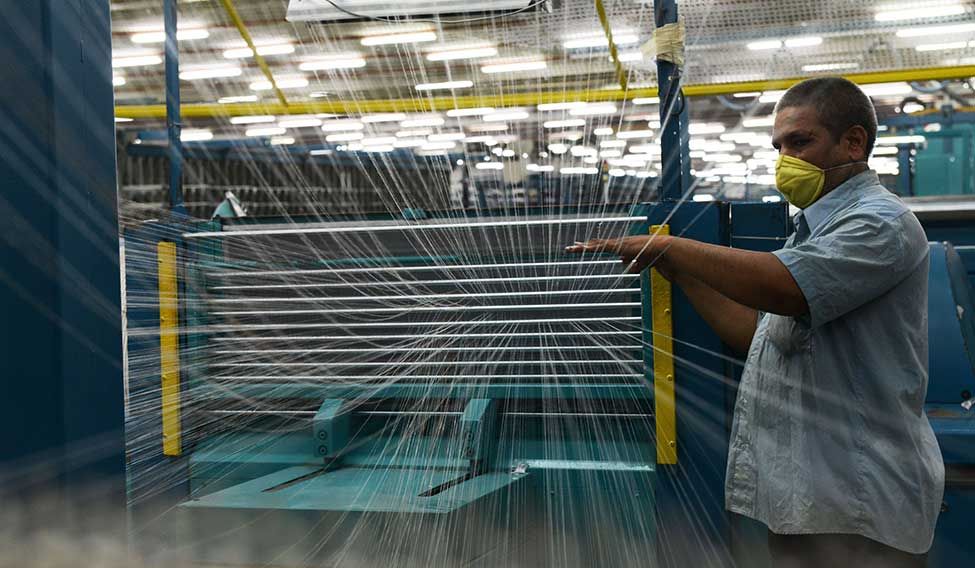The Union Minister for Finance and Corporate Affairs, Arun Jaitley, in the Union Budget, proposed an outlay of Rs 7,148 crore for the textile sector in 2018-19, as against Rs 6,000 crore in 2016. Though the numbers have improved, there were mixed reviews from the industry, post announcement.
Aditya Singhal, founder and CEO, IML Jeans, is not impressed with the budget. He says, “The budget allocation of Rs 7,100 crore in the budget would be helpful but the real issue for the textile industry is lack of skills, high cost of capital and low focus on startups in this industry,” he says.
Manish Dwivedi, assistant manager, sales and marketing, Bhilosa Industries, fears the result this amount will bring in the lives of small weavers. “Textile industry is the most affected by GST. Because of increased imports from China and other competitive markets, fabric market hits at large scale. Government should apply anti-dumping duty on the same. Keeping the practical working of textile industry (specially for small weaver), they should ease the process of e-way bill. Though it’s a welcome move from finance minister, announcing Rs 7,148 crore, let’s wait if this will give the small weavers something to cheer about,” he says.
Sunil Alagh, founder and chairman, SKA Advisors, feels that the move by government will increase involvement of women in the textile sector. “The textile sector comprises of about 90 to 95 per cent MSME units, which will also have greater fund flow due to the reduction in the corporate tax. This will also increase women’s employment in the textile industry. Of course, every industry like Oliver wants more. But they need to move forward and if they face further difficulties, I am sure the government will be forthcoming in this very critical industry,” he says.
The finance minister has also proposed to extend the benefits under Section 80JJAA of the Income Tax Act to footwear and leather industry. However, he noted that the minimum period of employment is relaxed to 150 days in the case of apparel industry. Extending this relaxation of minimum period of 150 days to footwear and leather industry, the finance minister hoped this would encourage creation of new employment in this sector.
Dr Gayathri Vasudevan, cofounder & CEO, LabourNet Services, says that this move will help in generating more jobs. “Textile industry has had the special benefit of fixed employment term. However, this budget has extended this facility over to leather and footwear industries by relaxing this from 240 day to 150 days. This is surely an innovative and economic move towards generating more jobs in these sectors. Overall, the consistent effort to increase employment opportunities is commendable,” she says.
However, Bhavin Parikh, CEO, Globe Textiles India Ltd feels that the budget lacks initiatives taken to revive of textile SEZs. “For textiles (industry), while there is an allocation of Rs 7,148 crore, not much has been said about concrete correctional measures to boost India’s export competitiveness or policies favouring a revival of textile SEZs.”






